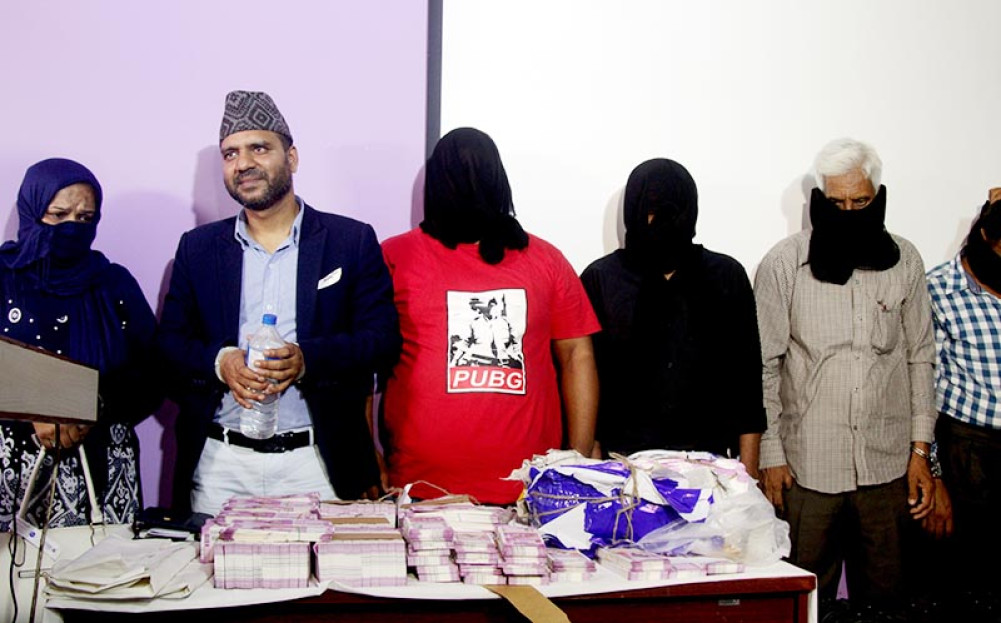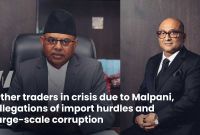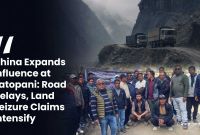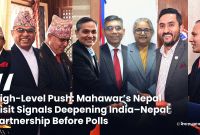Dirty Money, Clean Image: The Shocking Media Web Behind Yunus Ansari

Yunus Ansari, long regarded as one of Nepal’s most enigmatic and controversial figures, was rearrested on Saturday—just moments after walking free from Nakkhu Prison—by Nepal’s Central Investigation Bureau (CIB) in connection with an ongoing investigation into money laundering. A man whose name has repeatedly surfaced in connection with counterfeit Indian currency operations, Ansari now finds himself once more at the center of Nepal’s criminal justice spotlight.
According to CIB officials, the arrest was executed in accordance with a formal request made to the Department of Prison Management on May 21, anticipating the end of Ansari’s six-year sentence for possession of counterfeit Indian banknotes. "We arrested Yunus Ansari last evening upon his release from Nakkhu Prison for an investigation into money laundering. On Sunday, the court also remanded him for five days' judicial custody," said Senior Superintendent of Police Hobindra Bogati.
A Familiar Face, A Persistent Threat
Ansari's criminal footprint spans over a decade. His name first made national headlines on December 28, 2009, when he was apprehended with counterfeit Indian currency worth INR 2.54 million. Then the chairman of National Television, Ansari presented a paradox—on one hand, a media entrepreneur at the helm of a national broadcast platform; on the other, a man with alleged links to the notorious underworld figure Dawood Ibrahim. That very duality would come to define his public image: a carefully crafted façade of legitimacy cloaking a persistent undercurrent of criminal enterprise.
The years that followed saw a pattern emerge—arrest, release, and re-arrest. In 2010, authorities confiscated another INR 4.09 million in fake currency, again tied to Ansari’s network. After serving time, he was released in 2013, only to be caught once more in 2014 with INR 3.5 million in counterfeit notes. But it was the 2019 bust at Tribhuvan International Airport—with a staggering INR 76.79 million in fake currency—that sealed his reputation as the most high-profile player in Nepal’s counterfeit currency racket. He was convicted, fined, and sentenced to six years in prison, which concluded this week.
Media, Money, and Manufactured Legitimacy
Throughout his incarcerations, Ansari managed to maintain a curious form of relevance—not only in the criminal underworld but also in Nepal’s media and political discourse. His tenure as the chairman of National Television was no coincidence. According to several investigative sources and whispers within journalistic circles, Ansari allegedly funneled illicit funds into the media sector to sanitize his public image. Senior journalists and editorial figures, knowingly or otherwise, played a role in presenting him as a misunderstood businessman rather than a habitual offender.
This strategic use of media influence not only enabled Ansari to deflect scrutiny but also granted him access to soft power networks. Insiders suggest that television coverage, carefully framed interviews, and planted opinion pieces helped reinforce a narrative that blurred the lines between redemption and reputation laundering.
A Wider Net?
While the CIB’s current investigation focuses on money laundering, the scope may well expand. Given Ansari’s alleged transnational ties and long-standing pattern of recidivism, there are concerns about deeper financial and political linkages that have yet to be fully exposed. Authorities have remained tight-lipped on whether others, particularly in the media and financial sectors, may soon face scrutiny as part of the probe.
For now, Yunus Ansari remains in judicial custody. But his story is emblematic of a larger malaise—how illicit capital, when laundered through influence and image, can infiltrate public institutions and erode trust in them.
What lies ahead may not just determine the fate of one man, but reveal the structural cracks in Nepal’s fight against financial crime. The coming days will be telling—not merely in what is uncovered, but in how deep the investigators are willing to go.
Yunus Ansari



![From Kathmandu to the World: How Excel Students Are Winning Big [Admission Open]](https://nepalaaja.com/index.php/img/70194/medium/excel-college-info-eng-nep-2342.jpg)
